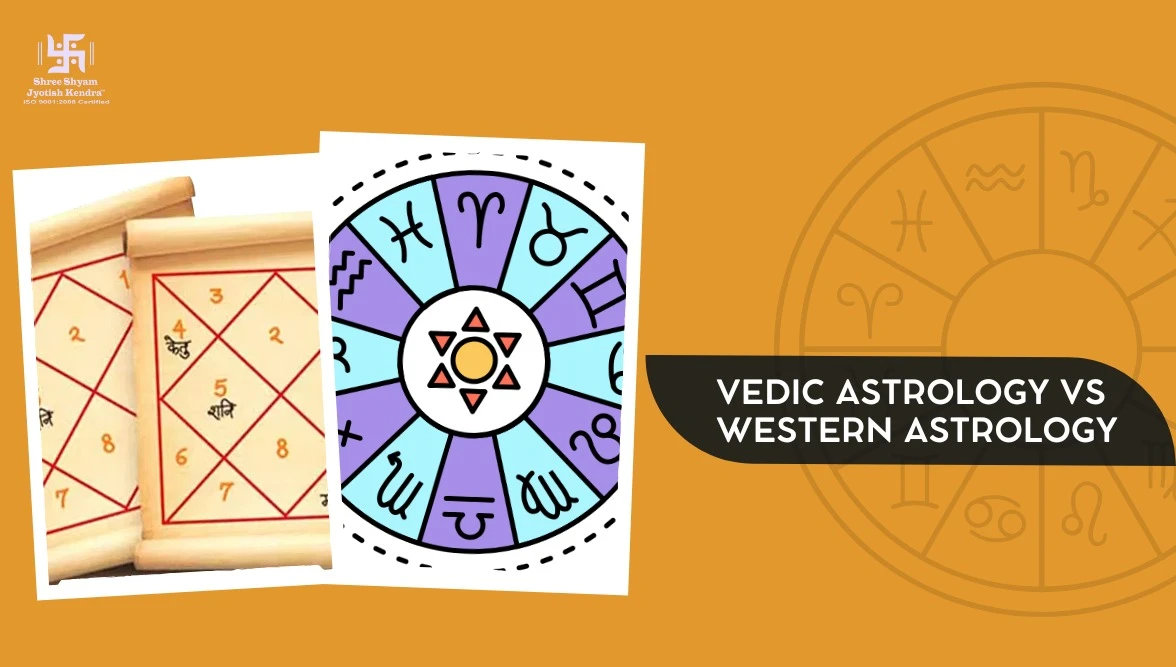 Have you ever read your daily horoscope and thought, “This doesn’t feel right”? Or maybe you’ve noticed how two astrologers—one Eastern, one Western—gave you wildly different readings based on the same birth details?
Have you ever read your daily horoscope and thought, “This doesn’t feel right”? Or maybe you’ve noticed how two astrologers—one Eastern, one Western—gave you wildly different readings based on the same birth details?
If so, you’re not alone. Thousands of people today are caught in the crossfire of an age-old debate: Vedic astrology vs Western astrology. Which one is more accurate? Which system can you actually trust to guide major life decisions—career, relationships, health, or spiritual path?
Let’s break it down, friend-to-friend, and uncover the truth behind these two ancient systems. You’re about to get clarity like never before.
Why This Topic Matters More Than Ever
In today’s hyper-digital age, more and more people are turning inward, seeking clarity and guidance not from data, but from the cosmos. And while astrology has found a revival globally, most seekers are unaware that the two most practiced systems—Vedic (Indian) and Western (Tropical) astrology—are fundamentally different.This isn’t just a battle of zodiac signs; it’s about accuracy, life relevance, spiritual depth, and timeless truth.
Let’s explore what truly separates the two—and more importantly, which one offers you the deeper insights for your unique journey.
What Is Vedic Astrology?
Also known as Jyotish Shastra, Vedic astrology originated over 5,000 years ago in the Indian subcontinent. The word “Jyotish” translates to “science of light.”Core Foundations of Vedic Astrology:
- Sidereal Zodiac: Unlike the Western system, Vedic astrology uses the sidereal zodiac, which aligns with the actual constellations in the sky. This makes it astronomically more accurate.
- Nakshatras (Lunar Mansions): 27 powerful star clusters that play a central role in reading destiny and karma.
- Dasha System: A unique predictive method that maps your life into planetary periods, providing razor-sharp timing for events.
- Karma & Dharma-Centric: It doesn’t just tell you “what” but “why”— focusing on your past life karma, purpose (dharma), and spiritual growth.
What Is Western Astrology?
Rooted in Greco-Roman tradition, Western astrology is more psychology-driven and personality-focused. It’s what you’ll commonly find in horoscopes across magazines, social media, and pop culture.Core Features of Western Astrology:
- Tropical Zodiac: Based on the seasons, not the fixed constellations. This means your Sun sign may actually be off by nearly one sign compared to the Vedic chart.
- Sun Sign Dominance: Emphasis is mostly on your Sun sign, which generalizes traits and daily predictions.
- Focus on Personality: It explores your inner psyche, character strengths, and behavioral tendencies.
Also Read: How Indian Astrologers Use Vedic Astrology to Predict the Future

Vedic Astrology Vs Western Astrology: Key Differences You Need to Know
Here’s a quick side-by-side comparison to make it crystal clear:|
Aspect |
Vedic Astrology |
Western Astrology |
|
Zodiac Type |
Sidereal (fixed stars) |
Tropical (seasons-based) |
|
Primary Planet |
Moon |
Sun |
|
Chart Style |
North/South Indian style charts |
Circular charts |
|
Focus |
Karma, life events, spiritual growth |
Psychology, personality |
|
Predictive Accuracy |
High (due to dasha system) |
Moderate |
|
Nakshatras |
Yes (27 lunar mansions) |
No |
|
Planetary Periods |
Mahadasha system |
No such system |
|
House Calculations |
Whole sign houses |
Placidus system (uneven) |
|
Origins |
Vedas and ancient rishis (over 5000 yrs) |
Greek and Babylonian traditions |
Why Vedic Astrology Feels So Uncannily Accurate
- Have you ever wondered how some astrologers can pinpoint the exact year of your promotion, or explain your marriage delay with chilling accuracy?
- That’s the power of Vedic astrology. Its use of the Dasha system (planetary periods), transits (Gochara), and remedial measures like gemstones, mantras, and rituals makes it a living, breathing tool for transformation.
- Most importantly, it gives meaning to your challenges by placing them in the context of karmic evolution.
What Do Scientists and Experts Say?
- While astrology remains a spiritual science, many data points favor the sidereal accuracy of Vedic astrology. Scholars from India’s Banaras Hindu University and astrologers like Dr. David Frawley (author of Astrology of the Seers) consistently vouch for the precision of Vedic methods.
- Even Western astrologers are now exploring Vedic practices for deeper insight—merging both systems in what’s being called “astro-synthesis.”
- But when it comes to timing events or life predictions, the verdict is clear: Vedic astrology reigns supreme.
Wondering Which System Is Best for You?
Here’s how to decide:- If you’re curious about your personality, habits, and emotional nature → Western astrology is insightful.
- But if you want to know why certain events unfold, when they will happen, and how to align with your soul’s path → Vedic astrology is the guide you need.
Consult India’s Most Trusted Vedic Astrologer – Pt. Pawan Kaushik
With over 30+ years of experience, Pt. Pawan Kaushik has guided thousands globally with personalized charts, gemstone recommendations, and powerful remedies. If you’re looking for authentic, accurate, and spiritually empowering astrology, this is where your search ends.Book Your Consultation Today with the best Vedic astrologer in India to balance your life.
Also Read: Which Business Suits Me According to Astrology?

Conclusion: Which One Should You Trust?
Here’s the truth: Both systems have value, but for deep spiritual insight, accurate predictions, and karmic guidance, Vedic astrology offers more depth, precision, and ancient wisdom.If you’ve ever felt confused, stuck, or unsure why life unfolds the way it does—Vedic astrology can offer you clarity, purpose, and direction.
And remember, astrology isn’t about fate. It’s about alignment.
Ready to decode your true life path?
 +91 9990176000
+91 9990176000 +91 9999097600
+91 9999097600
 CALENDAR 2026
CALENDAR 2026











